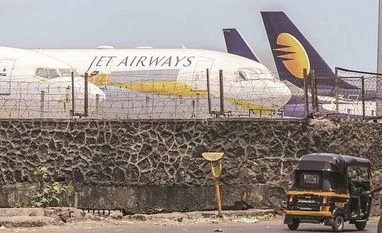And yet … and yet … he was cautious about the long term. Lee and Singapore’s president, Sellappan Ramanathan, had grumbled for years about Air India and Indian Airlines. After the reforms PV Narasimha Rao and Manmohan Singh introduced in 1991, they still feared India’s cumbersome and corrupt state-owned carrier would drag the country back. Lee Hsieng Loong, Singapore’s current prime minister, complained that air services had remained static to protect Air India, subjecting passengers to acute discomfort and “ungodly” hours. Other Singaporeans openly deplored senior Indian officials and politicians abusing the national carrier. Singapore wouldn’t even buy equity in Air India because the airline was doomed.
Jet showed that an era of smart and efficient civil aviation was dawning at last. “When I went up the aircraft,” Lee told me afterwards “all the girls were smartly dressed like Singapore Airlines girls and the seat in front of me had that Sunday’s Straits Times”. I was surprised he didn’t see through the gimmick. Jaswant Singh teased him about it too. But Lee was convinced he received normal service. “They can compete with SIA,” he said. “And why not? They have retired SIA staff working for them, so picking up all the tips on how to do it.” An airline that was clever enough to seek SIA’s advice was on the right track. The wheel had turned full circle. Time was when SIA looked up to JRD Tata’s Air India. Lee had protested in colonial Singapore’s Legislative Assembly as long ago as 1957 that BOAC and Qantas were allowed 51 per cent equity in the new Singapore-registered Malayan Airline because they were white-owned while Air-India — Asia’s if not the world’s best airline — was excluded.
My own epiphany was a decade before Lee’s. In 1995 my son and I flew SIA from Singapore where we lived then to Hyderabad, and took the Jet flight to Calcutta, as it still was. I was astonished at the sleek aircraft, the transformation of shabby old Dum Dum airport, and, most of all, by the staff’s helpfulness. Their courtesy didn’t end with showing us to our seats and relieving me of my hand luggage. A bright young lady asked for our baggage tickets on arrival and collected our cases from the carousel. Calcutta has changed, I told my son. “Wait till you go outside!” the girl laughed. She was right. Calcutta was still crowded, scruffy, raucous, rough and dirty.
Three prime ministers were believed to have supported the SIA-Tata project. But C.M. Ibrahim, the civil aviation minister, didn’t. Neither did his aviation secretary, Yogesh Chandra. Singaporeans didn’t suspect corruption until 14 years later Ratan Tata accused an unnamed minister of demanding a Rs 15-crore bribe to clear the proposal. Singapore had also expected a helping hand from Goyal, forgetting its own experience. Business resembles migration: Pioneers don’t want others to follow in their wake.
I wasn’t surprised by Jet’s collapse. Flying Jet business class to Singapore some years ago I welcomed the long wait between flights in Chennai to finish some writing. It was not to be. Chennai airport didn’t have a business class lounge; in any case, Jet’s casual and delayed check-in left me little time for writing. The young Jet steward was helpful but bitter. He didn’t have a name tag because Jet was economising. His salary was overdue. He feared retrenchment.
Perhaps despite the dazzling first impression, Lee foresaw it all. He hummed and hawed when I asked whether Jet’s success reflected the future. “I don’t know,” he murmured, “it is very difficult to predict how it will unfold with free enterprise not really given full rein yet.” It would be an altogether different India “if you allowed enterprise to take over”. If he were in charge, he would have wound up the red tape and “given Indian entrepreneurs full rein”. Had he still been around he might have said Jet is a dream gone sour. I hope Narendra Modi’s India, where the Rafale controversy suggests politicians and businessmen are as firmly linked by patronage as horse and carriage in the old song, won’t go the same way.
To read the full story, Subscribe Now at just Rs 249 a month
Already a subscriber? Log in
Subscribe To BS Premium
₹249
Renews automatically
₹1699₹1999
Opt for auto renewal and save Rs. 300 Renews automatically
₹1999
What you get on BS Premium?
-
Unlock 30+ premium stories daily hand-picked by our editors, across devices on browser and app.
-
Pick your 5 favourite companies, get a daily email with all news updates on them.
Full access to our intuitive epaper - clip, save, share articles from any device; newspaper archives from 2006.
Preferential invites to Business Standard events.
Curated newsletters on markets, personal finance, policy & politics, start-ups, technology, and more.
Need More Information - write to us at assist@bsmail.in
)